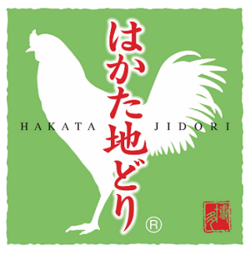

| Studies conducted by the University of Tokyo and Kyushu University have revealed that an ingredient contained in the breast meat of Hakata Jidori, a brand of free-range chicken produced in Fukuoka Prefecture, has the ability to improve memory function. In 2019, it was accepted by the Consumer Affairs Agency as a food product with the functional claim allowing labeling as "reported to support memory related to new events." It is the first fresh meat food product with a functional claim in Japan. There are increasing expectations for improving the cognitive function of elderly persons in the future. |  |
The first food product with a functional claim for fresh meat
Supermarkets in Fukuoka Prefecture sell chicken meat that is rare even in Japan. It is "Hakata Jidori (breast meat)" labeled as a food product with a functional claim (Fig.1). Food products with a functional claim are foods that can display functionality that helps maintain and improve health by submitting necessary information such as the scientific basis to the Consumer Affairs Agency. The product "Hakata Jidori (breast meat)"is labeled as "Has the function of supporting memory regarding relatively recent events experienced by individuals (recent memory), which is part of the cognitive function that tends to decline with age." It is the first food product with a functional claim in Japan for fresh meat.

Fig.1 "Hakata Jidori (breast meat)" sold as a food product with a functional claim
(Provided by the Fukuei Agricultural Cooperative)
Produced only in Fukuoka Prefecture
"Hakata Jidori" is produced and sold by the agricultural cooperative corporation "Fukuei Cooperative" (Kurume City, Fukuoka Prefecture), which is organized by producers. Currently, about 540,000 chickens (FY 2020) are raised on and shipped from 10 farms in Fukuoka Prefecture that are members of the association. The association even owns a poultry processing plant.
Hakata Jidori, which is a native breed of Japan, was created in 1987 by crossbreeding meaty white Plymouth Rock possessing grandparents of gamefowl (Shamo) from Fukuoka Prefecture, which is known for its good taste, and Sazanami, which has many umami ingredients. It has a pleasant chewiness and a rich umami flavor. The number of shipments is increasing year by year, but it is not produced outside of Fukuoka Prefecture.
Outside of Fukuoka, it is also sold at Meijiya Sangyo Shiki Branch in Shiki City, Saitama Prefecture, but it can be purchased anywhere in the country through online sales. The Fukuei Cooperative mail order site sells a variety of products (Fig.2), such as a "mizutaki set" and "chicken wing curry".

Fig.2 Ingredients for mizutaki available online
(Provided by Fukuei Agricultural Cooperative)
The functional ingredient is imidazole dipeptide
An ingredient that has recently been found to have functionality related to improving memory function is a compound in which two amino acids are linked together called imidazole dipeptide, which is contained in breast meat. It has antioxidant and anti-inflammatory properties, and has previously been well known for its effect on relieving muscle fatigue. It is contained in the muscle tissue of animals and fish: typical examples are anserine and carnosine, which are contained in chicken at a ratio of 3:1. The breast meat of "Hakata Jidori" contains about 1.8g of imidazole dipeptide per 100g. This is about 40% greater in comparison with broilers.
Efficacy demonstrated in two studies involving humans
Tatsuhiro Hisatsune, associate professor at the University of Tokyo Graduate School of Frontier Sciences, conducted two studies to investigate the effects of imidazole dipeptide. The studies utilized a highly reliable test method known as a randomized controlled trial. In the first study, elderly persons were divided into two groups: one group of 19 persons (test food group) receiving a granular food containing 1 g of imidazole dipeptide, and the other 20 persons (placebo control group) received granulated food that did not contain imidazole dipeptide. The subjects were requested to eat the food for three months, and it compared whether there was a difference in their memory and cognitive functions.
Regarding memory, participants were asked to listen to a simple story consisting of 25 words and it was assessed how many words they remembered after 30 minutes. Conversational ability and emotional stability, which are related to cognition, were also examined in addition to examination of cerebral blood flow through brain imaging. The results showed that in comparison with the placebo group, the imidazole dipeptide intake group had significantly higher memory function and increased blood flow in the brain regions involved in memory (Fig.3). In the second study, subjects were also divided into a test food group (42 persons) and a placebo group (42 persons) for 6 months, and it was found that the memory function of the imidazole dipeptide group was significantly higher.

Fig.3 Increase in cerebral blood flow due to food containing imidazole dipeptide (red part)
= Hisatsune et al., Aging & Dis, (2018)
The results of these human trials that showed efficacy led to the submission of notification as a food product with a functional claim. Associate Professor Hisatsune remarked regarding the possibility of preventing dementia through food intake: "Consumption of meat decreases with age, but chicken has a light taste and is easy to eat. It can be expected that moderate intake of chicken breast meat in a daily diet will lead to the prevention of aging of the brain."
Project name
Science and technology research promotion program for agriculture, forestry, fisheries and food industry
Project period
FY 2013 to 2015
Title
Research on maintenance of mental and physical health of middle-aged and elderly persons using a highly functional dipeptide contained in chicken
Leading research institutes
University of Tokyo Graduate School, Kyushu University, Nippon Ham Co., Ltd., etc.
